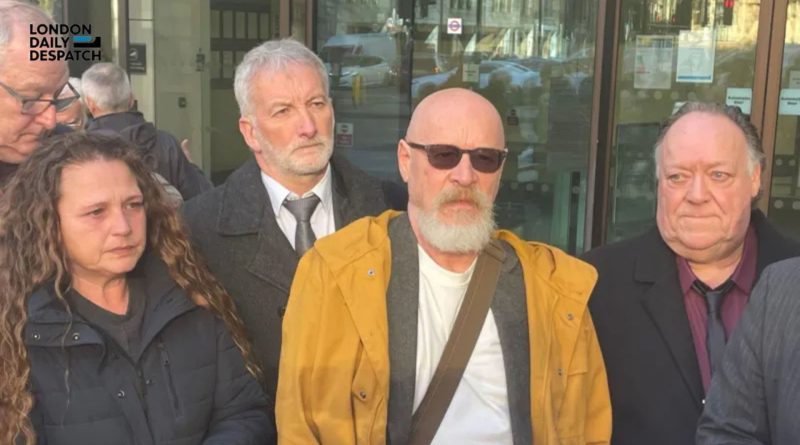Ulez Protesters Fined for Harassing Mayor Sadiq Khan
On April 6, a protest against London’s Ultra Low Emission Zone (Ulez) took place near Mayor Sadiq Khan’s home in Tooting. This demonstration, called “Khanage at Khan’s,” attracted approximately 100 individuals. The protest aimed to voice concerns about the Ulez policy, which aims to reduce pollution in the city. However, the protest led to legal consequences for its participants.
Harassment Charges
Four of the protesters were fined for harassment. They were identified as Nicholas Arlett, Martin Whitehead, Alison Young, and Lloyd Dunsford. The group was found guilty at Westminster Magistrates’ Court. Their actions near the Mayor’s home were deemed disruptive and harmful to the local community.
Details of the Demonstration
The protest started roughly 100 meters from Mayor Khan’s residence. According to reports, the protest was loud and chaotic. The protesters used amplified music and shouted offensive language. One notable participant, Alison Young, wore a dinosaur costume, which attracted attention. Other individuals in the group displayed aggressive behavior, especially during the police intervention.
Court Hearing Insights
During the court proceedings, District Judge Daniel Sternberg addressed the nature of the protest. He noted that while Mayor Khan was not at home during the event, the protest caused alarm among his neighbors. The judge stated that such disruption could disturb the private lives of residents. He emphasized that the protesters should have known their actions might cause distress. In his view, the law required only that the protest had the potential to be distressing, rather than any actual harm to the Mayor himself.
Penalties Imposed
After evaluating the participants’ actions, the court imposed financial penalties. Nicholas Arlett received the highest fine of £750. He also had to pay an additional £300 victim surcharge. This surcharge goes to the Victim and Witness General Fund and is not designated for Sadiq Khan. Martin Whitehead, Alison Young, and Lloyd Dunsford were fined £500 each, along with a £200 victim surcharge.
Reactions from the Protesters
After the court ruling, Nicholas Arlett expressed his frustration outside the court. He stated, “I am absolutely disgusted that this country has become as it has, with our judiciary.” His remarks highlighted the sense of injustice felt by some members of the protest.
Simon Fawthrop, a spokesperson for the group of protesters, described the ruling as a “travesty of justice.” He claimed that the decision was a blow to free speech and the right to peaceful protest. Following the court’s decision, Fawthrop indicated that the group planned to appeal the conviction and the imposed penalty. He raised concerns about the perceived suppression of protest activities within the country.
Broader Implications for Protests
This incident has sparked broad discussions about the rights of citizens to protest. Many supporters argue that public demonstrations are a fundamental aspect of a democratic society. They see these actions as essential for voicing dissent and influencing public policy. However, the legal consequences faced by the protesters serve as a reminder of the fine line between legitimate protest and activities that could be viewed as harassment.


Pingback: How to buy enclomiphene on line
Pingback: pharmacie de la livraison en ligne kamagra
Pingback: buy cheap androxal usa buying
Pingback: how to order flexeril cyclobenzaprine toronto canada
Pingback: get dutasteride cheap pharmacy
Pingback: generic fildena in mexico
Pingback: buy gabapentin online usa
Pingback: order itraconazole cheap with fast shipping
Pingback: get staxyn uk sales
Pingback: avodart shipped overnight no perscription
Pingback: purchase xifaxan usa pharmacy
Pingback: rifaximin ups fedex shipping
Pingback: objednávejte kamagra z kanady